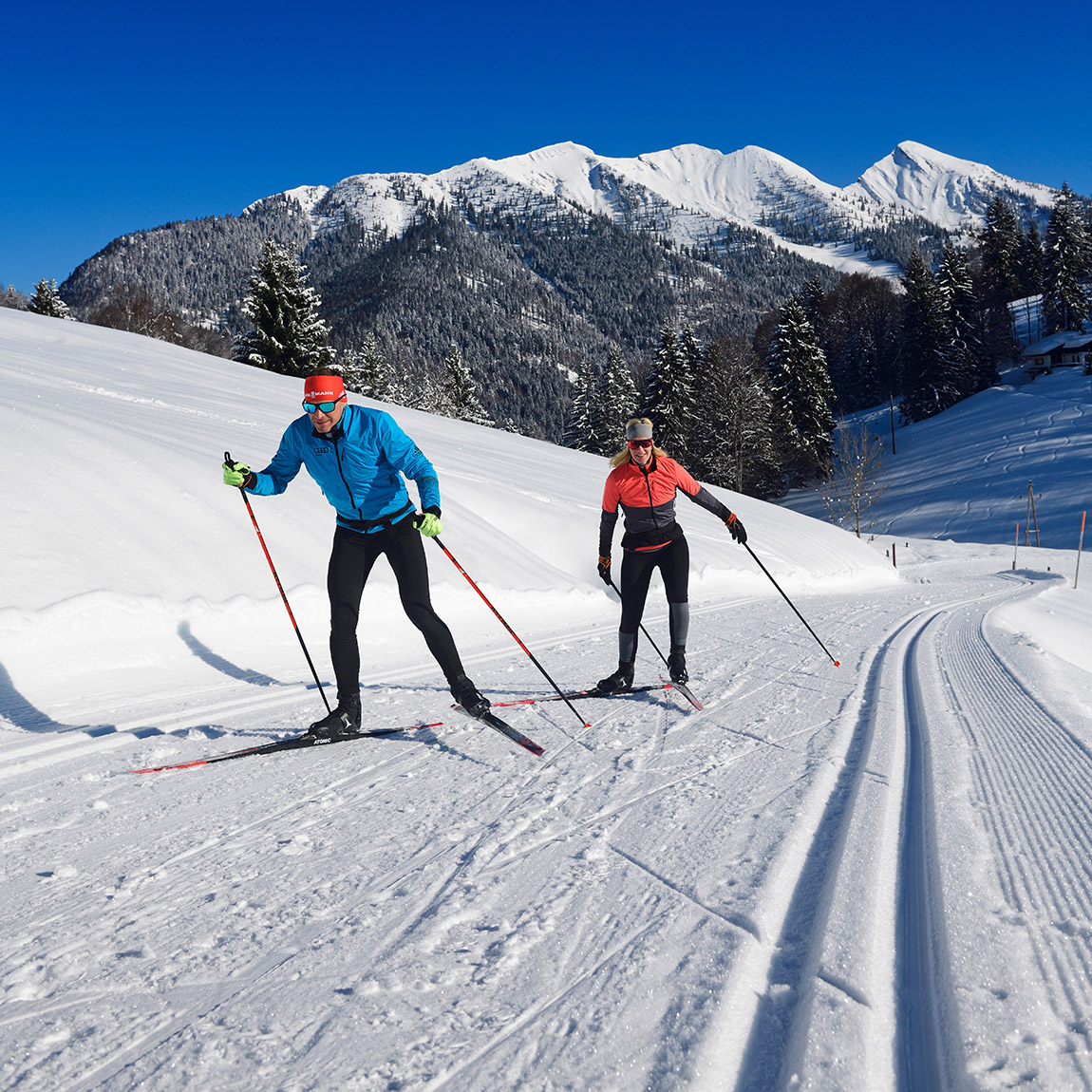WINTER AT DAVOS KLOSTERS IN SWITZERLAND
TEXT: STUART FORSTER | PHOTOS: DESTINATION DAVOS KLOSTERS
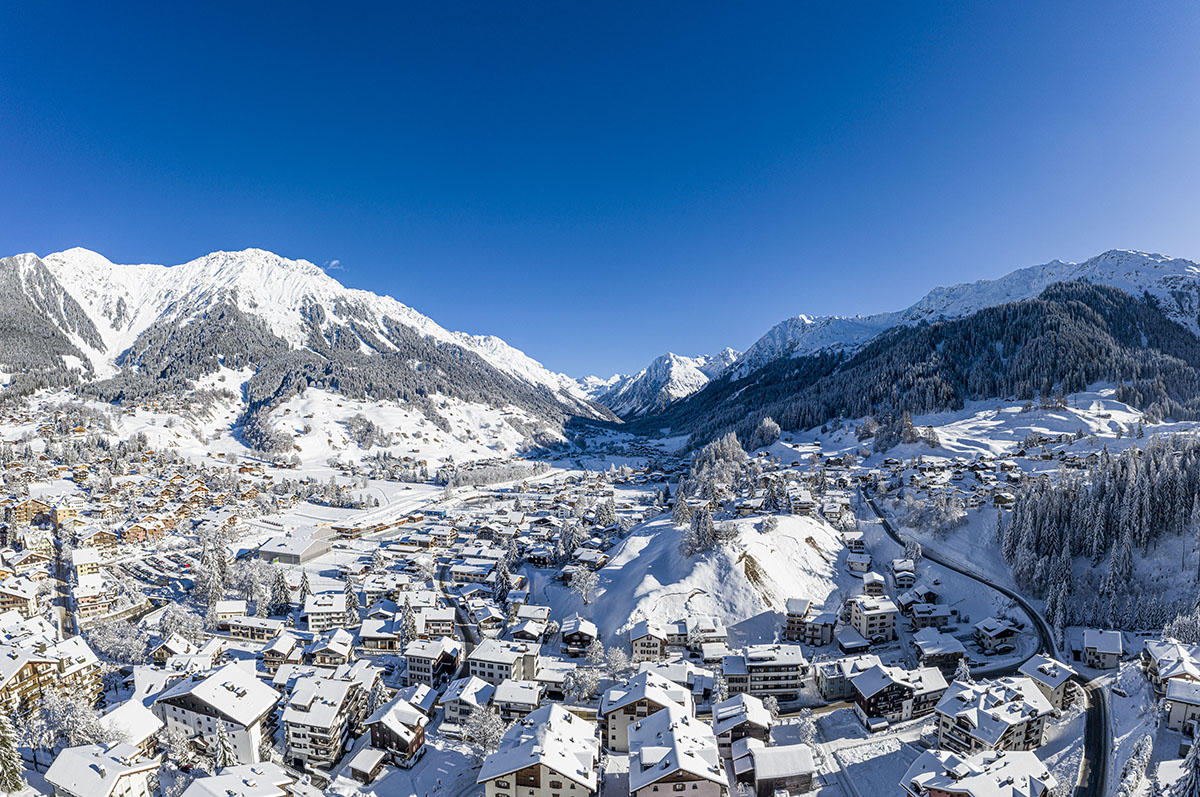
Photo: Andrea Badrutt
The town of Davos and the village of Klosters stand around ten kilometres apart from each other. Together they lend their names to one of Switzerland’s top ski resorts. The 2022-23 winter season at Davos Klosters opened on 18 November and continues until 23 April.
Located approximately 150 kilometres southeast of Zurich, Davos Klosters offers 300 kilometres of pistes across six ski areas. Their altitudes lie between 1,142 metres and 2,844 metres above sea level.
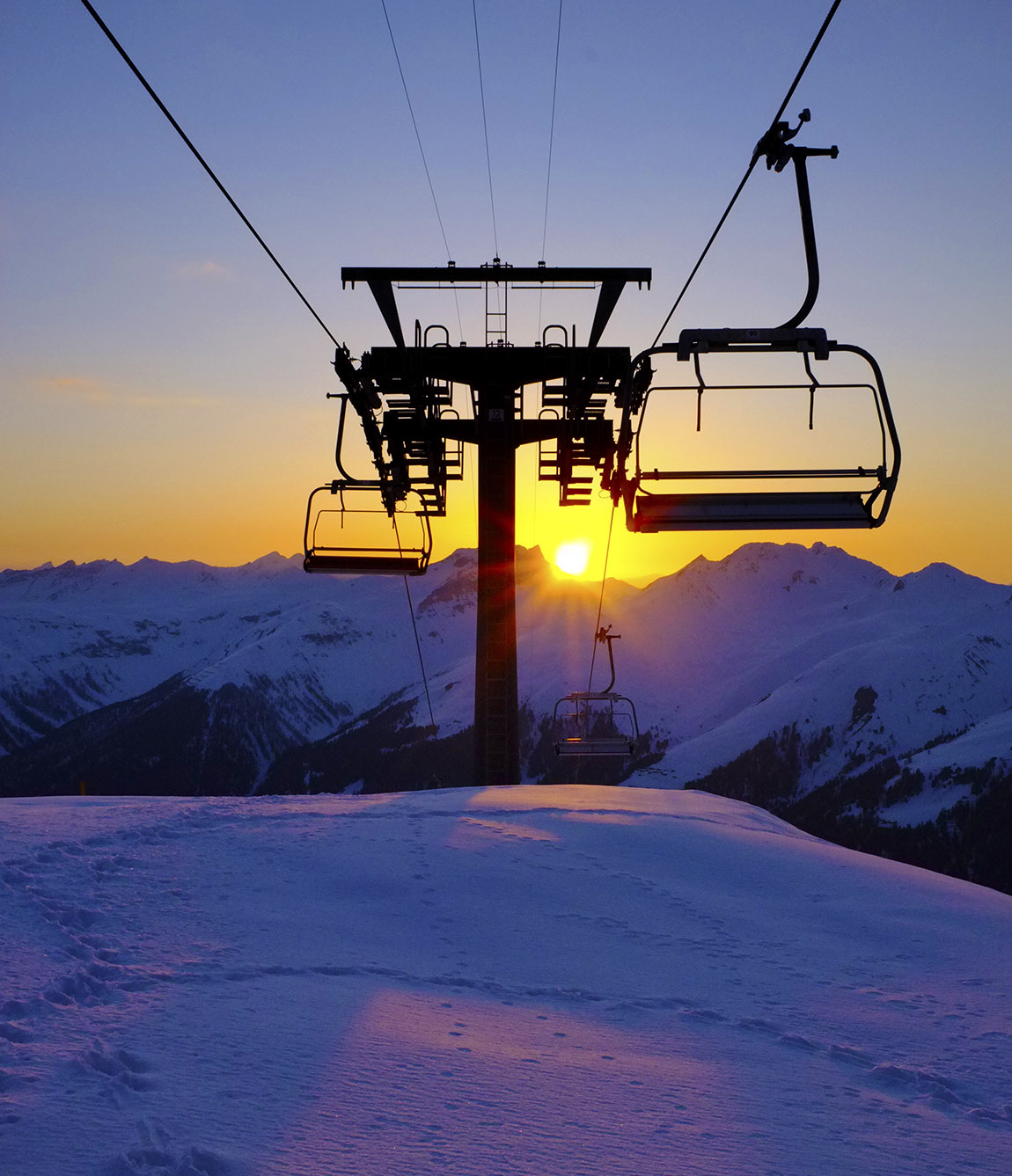
Photo: DKM
The Parsenn is a favourite for classic skiing. The Schatzalp attracts literature lovers who recognise it as the place that inspired the novel The Magic Mountain by Thomas Mann and encourages slow skiing – making it ideal for families. The Madrisa and Rinerhorn mountain areas also offer family-friendly slopes. Meanwhile, Pischa is known as a freeride mountain while the Jakobshorn draws freestylers and is easier than ever to reach.
“We opened a new cable car up to the Jakobshorn on the second station section. Now we can reach the peak very comfortably because it’s a state-of-the-art mountain railway. Up there we have a great view – a 360-degree view of our beautiful mountains,” explains Andreas Stoffel, Davos Klosters’ deputy head of marketing and sales in Europe and North America.
“You have snow parks and very good restaurants, so it’s worth stopping for a drink or for a meal. The mountain station was recently renovated,” he adds, while talking about the popular Jakobshorn.
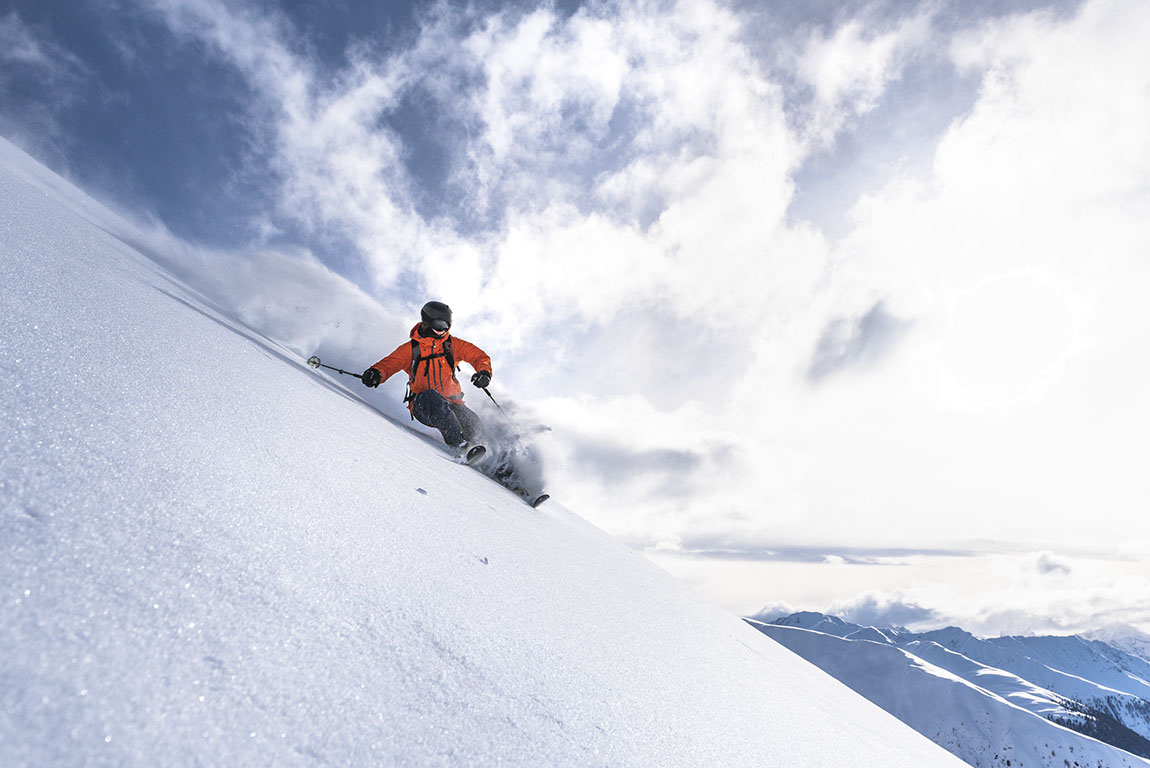
Photo: Tpmedia
Yet on New Year’s Day, skiing is not the only sport to cause excitement. In Klosters, piglets are dressed in colourful jackets and are cheered on by human spectators as they race along the streets. Hotschrennen, as the tradition is known, is long-established.
Later in the month, the annual meeting of the World Economic Forum will be held in Davos. Taking place from 16 to 20 January, the theme of the 2023 edition is Cooperation in a Fragmented World. Political leaders, heads of business and figures from civic society participate in dialogues aimed at developing ways forward and establishing potential solutions to issues through cooperations between the public and private sectors.
“Probably because of the World Economic Forum, many people think that Davos Klosters is expensive. I wouldn’t agree with this reputation. Davos is a big resort. We’ve got four five-star hotels in the region but we have a lot of three-star hotels and two-star hotels. And four-star hotels as well. It’s quite affordable because we have a large amount of hotel beds…especially during midweek or when you want to travel in March – which, in my opinion, is the best month for skiing,” says Andreas, countering preconceptions about the resort.
One recent hotel opening is the Alpine Inn; a renovation of a building dating from 1908. “It’s a new three-star superior hotel with big rooms and is very stylish. It’s a mixture of Alpine chic and industrial, so very modern, stylish and worth a visit. We have a bus stop right in front of the hotel and you reach the Parsenn or Jakobshorn ski areas within five to ten minutes,” says Andreas of the hotel in the centre of Davos.
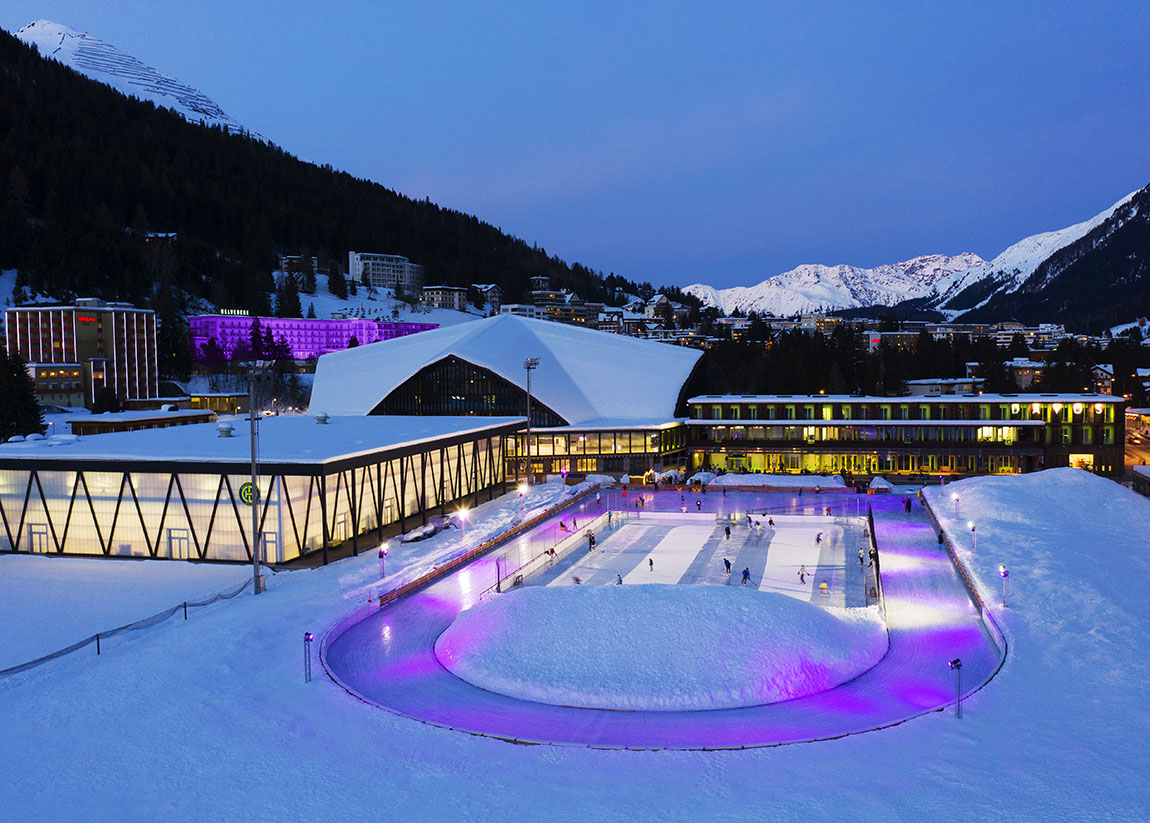
Photo: Marcel Giger
Use of public transport is included in the Davos Klosters Premium Card, which is provided to guests who spend at least one night in accommodation in the area. The card permits holders to travel on trains and buses in the region and for discounts – including on mountain railway tickets.
Increasingly, environmental concerns prompt travellers to ask questions about the sustainability credentials of destinations that they are considering visiting. The mountain railway company that serves Davos has its own hydropower plant and electricity is produced by photovoltaics that capture solar energy. The resort has other notable eco-credentials.
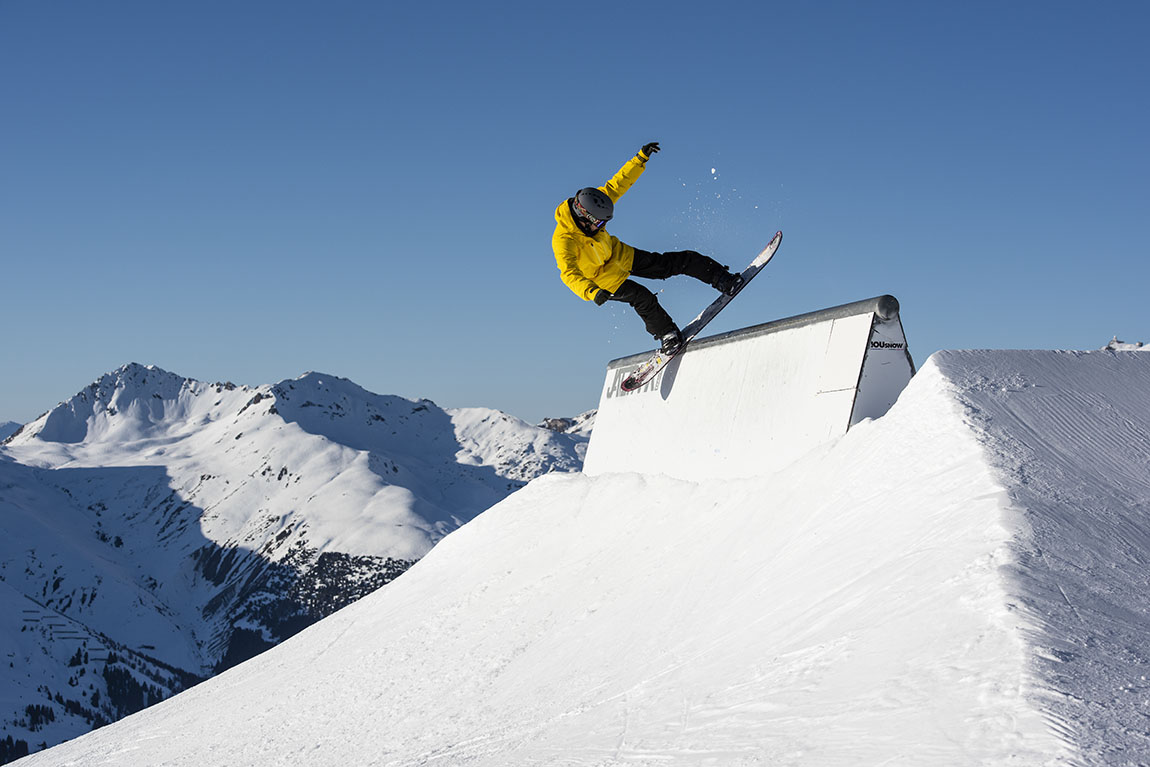
Photo: Dominic Zimmermann
“We have a project called Davos 2030, it’s a sustainable project, because we want to be the first Alpine destination which is CO2 neutral,” says Andreas before outlining the key principles of the myclimate Climate Fund Davos. Guests and customers who wish to be climate neutral when they stay or shop pay an additional contribution. That amount is matched by participating companies.
“Half of the customer contribution goes to climate protection projects in Graubünden – a forest reforestation project in the Prättigau/Davos region – as well as to a biogas plant project for Nepalese families, which reduces around 165,000 tonnes of carbon dioxide annually. Another 35 per cent of the customer contributions are earmarked for measures to make the participating businesses more sustainable. The rest goes to projects that reduce carbon emissions in Davos,” explains Andreas of a pioneering project aimed to reduce the production of carbon dioxide both locally and worldwide.
With global warming affecting the winter seasons in so many ski resorts, taking action to reduce carbon emissions should help visitors to keep enjoying the pistes of Davos Klosters long into the future.
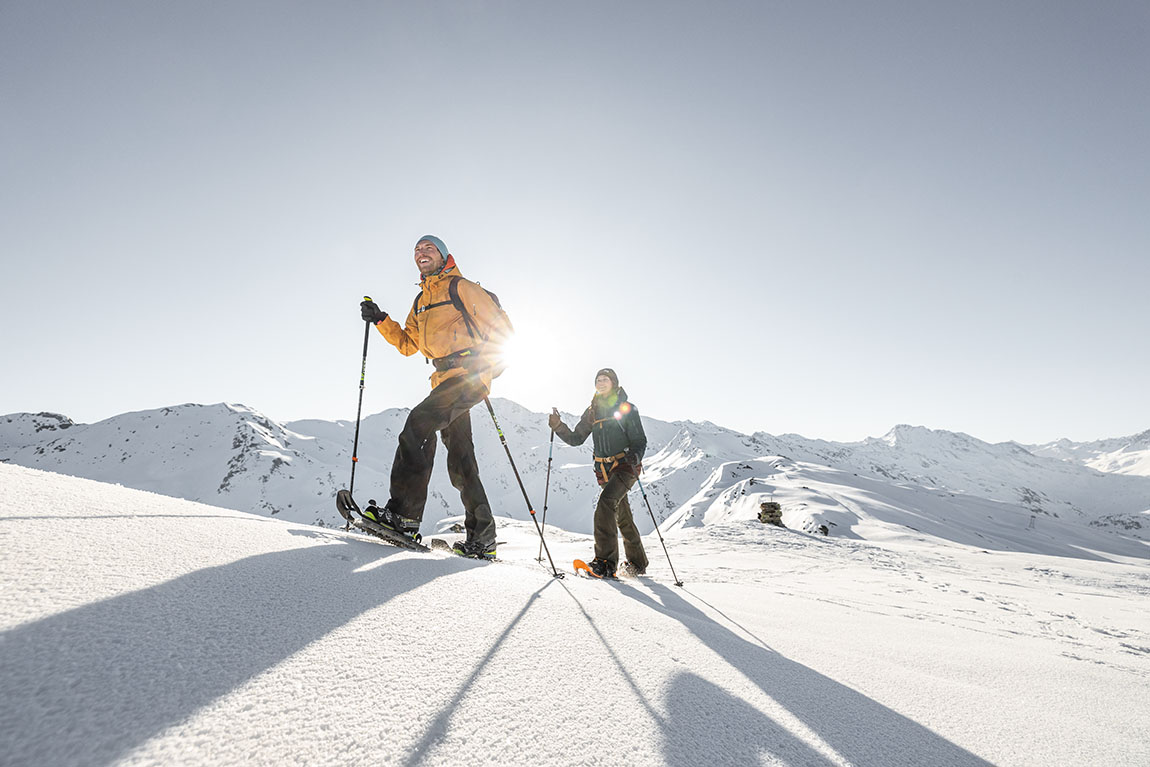
Photo: Martin Bissig
Subscribe to Our Newsletter
Receive our monthly newsletter by email



